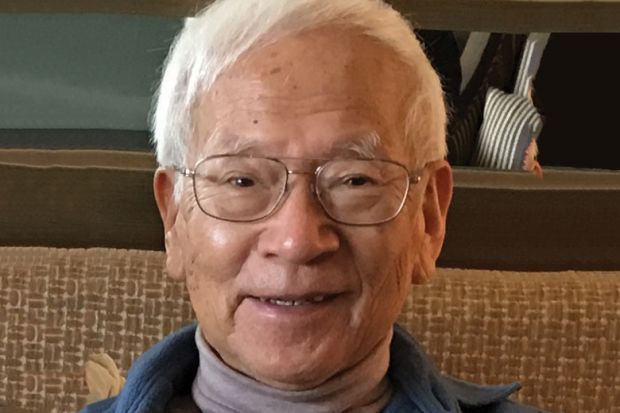A scholar who survived an extraordinarily dramatic childhood to become an expert on Japanese economic history has died.
Kozo Yamamura was born in Bangkok, Thailand, in August 1934. His Thai mother died giving birth and his Japanese father was caught spying for the British during the Second World War, sent back to Japan and subsequently executed. As a result, he grew up in an orphanage in Tokyo but ran away at the age of 12 and was rescued from near-starvation by a young black marketeer in Kobe. Although he had no earlier formal education, he was accepted at the prestigious Ashiya High School, came top of his class (1953) and passed the entrance exam to attend the University of Tokyo.
Professor Yamamura had never really felt at home in Japan, so he accepted a scholarship to escape to the United States. He graduated from the University of California, Berkeley, in 1957, secured his American citizenship by enlisting in the army – where he was immediately given a role in military intelligence in France – and then gained a PhD in economics at Northwestern University (1963). Much of his early life is detailed in his autobiographical novel, The Boy Who Defied His Karma (2011), published under the name of Michael S. Koyama.
After a number of short-term and visiting appointments at what is now San Diego State University, Boston College, Harvard University and the University of Hawaii, Professor Yamamura was appointed professor of economics and Asian studies at the University of Washington in 1972. He was to remain there until retirement in 2003, from 1988 as Tamaki professor of Japanese studies.
An expert on Japanese and comparative economic history, Professor Yamamura wrote The Postwar Economic Policy of Japan (1967), co-edited with Yasukichi Yasuba the first of a three-volume survey of The Political Economy of Japan (1987) and produced a number of other specialist texts. After retirement, however, he turned to writing thrillers with his wife Susan B. Hanley, again as Michael S. Koyama, as a way of reaching wider audiences with his core economic messages and warnings. His final book, published earlier this year, was the polemic Too Much Stuff: Capitalism in Crisis.
Hugh Patrick, emeritus Robert D. Calkins professor of international business at Columbia Business School, remembered Professor Yamamura for his “quizzical, sceptical perspective, particularly on generally perceived wisdom". "He had such a charming smile, especially when he made an acutely critical comment, which almost always was right on the mark," Professor Patrick said.
Professor Yamamura died of cancer on 15 February and is survived by his wife.




